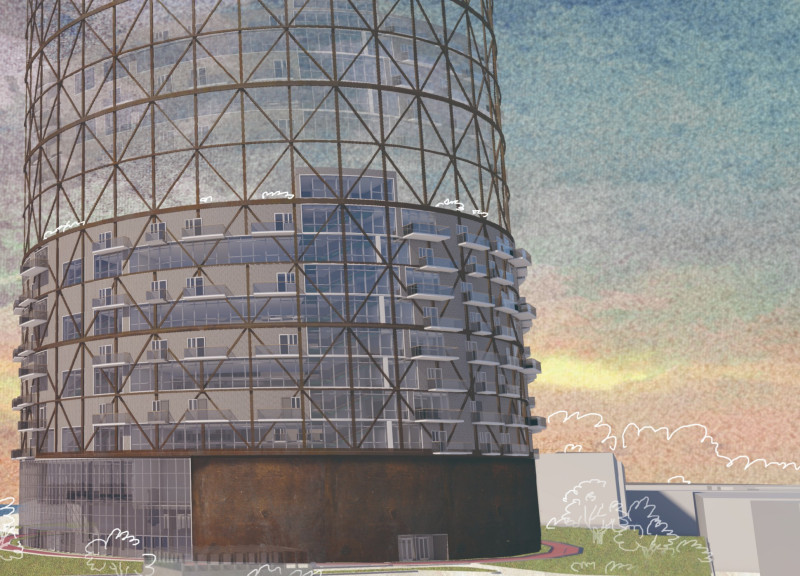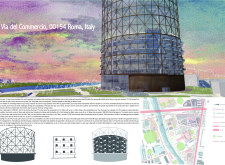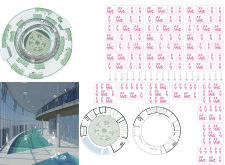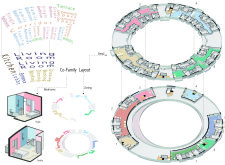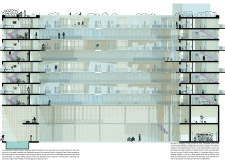5 key facts about this project
The design project in Rome addresses the ongoing challenge of housing affordability in urban areas while fostering a sense of community among its residents. Located on the site of a former gasometer once operated by Eni, the initiative combines modern living needs with the historical importance of its setting. By using the existing industrial structure, the design seeks to repurpose the site creatively while developing communal living environments suitable for various types of households.
Design Concept
The central idea is to create shared living spaces that promote social interaction without sacrificing individual privacy. The layout incorporates communal amenities designed to connect residents. This arrangement encourages community engagement and reflects a contemporary understanding of home and social belonging. By carefully positioning communal areas, the design allows for natural interactions, letting relationships flourish within the urban environment.
Historical Context
The historical significance of the site as an old gasometer adds depth to the design story. Retaining features of the existing structure helps honor the area’s industrial past while integrating new living spaces. This approach preserves cultural heritage and offers a fresh perspective on modern residential life. The blending of old and new creates a dialogue between the past and the present, enriching the experience for residents.
Adaptability of Spaces
Flexibility is a key aspect of the living arrangements offered. The design provides options that can accommodate different family structures, from young professionals to multi-generational households. This adaptability ensures that the spaces remain functional and relevant over time. By addressing the varied needs of its residents, the approach encourages inclusivity and fosters a robust community spirit among the inhabitants.
Large windows characterize the facades, allowing natural light to flood shared and private spaces. This feature not only enhances the sense of openness but also invites the outside world in, creating a vibrant atmosphere that supports both social interaction and personal reflection.


